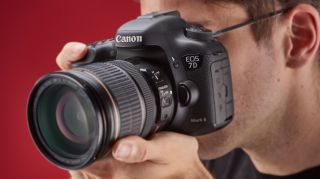Telephoto lenses are great at making distant objects fill your frame, but they can be equally useful for capturing closer subjects. With long focal lengths comes a shorter depth of field and creamier background bokeh blur, which is just the ticket for isolating a nearby object of interest.
Telephoto zooms can be picked up at relatively low prices and often have a decent zoom range like 70-300mm. However, you"ll need to up your budget to get something with a wide aperture that stays constant throughout the lens"s focal range – this gives you much more flexibility when you"re shooting in low light and generally means better image quality too.
Fast, near-silent autofocus systems are worth paying for because they make the lens smoother to use, while fancy glass elements reduce aberrations like distortion and color fringing, and weather sealing protects your lens in bad weather. Optical image stabilisation is practically a must-have when using telephoto lenses, and you do without it at your peril.
The maximum focal length of the lenses in this roundup is 300mm, and this is fine for most sports and some wildlife photography. If you need more magnification than this, though, you"re into super-telephoto photography, which you"ll find in a separate guide.
APS-C versus full frame
DSLR sensors come in two sizes. Most use APS-C size sensors roughly half the size of the full frame cameras by professionals, and this has an impact on the effective focal length and magnification of the lens.
So if you"ve got a 70-300mm telephoto, that effectively becomes a 105-450mm lens on an APS-C format DSLR. That"s rule number 1.
Rule number 2 is that some lenses are designed solely for APS-C cameras. You can"t use them on a full-frame model (well you can with Nikon DSLRs, but only in an APS-C "crop" mode which defeats the object).
With some lens types, like wide-angle zooms, you have to get a lens made for your camera"s sensor size, but with telephotos it"s a lot simpler. Almost all of those we recommend are designed for full frame cameras so they"ll work on APS-C models too. This is ideal because it means you can keep your lens if you upgrade to a bigger camera later. There are a couple of lenses designed only for APS-C cameras - these are marked EF-S on Canon lenses, DX on Nikon, DC on Sigma and Di II on Tamron.
No comments:
Post a Comment